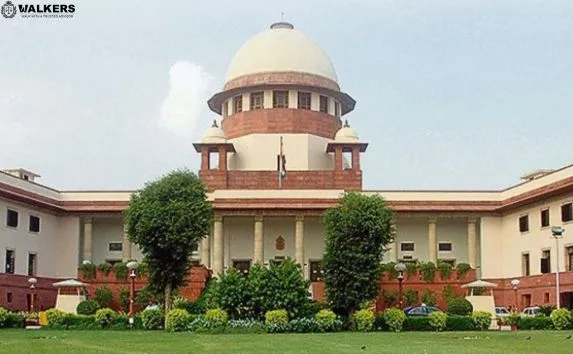


Supreme Court Stresses Complete Chain of Circumstantial Evidence and Exclusion of Alternative Theories in Recent Murder Case Acquittal
In a significant ruling, the Supreme Court highlighted the criticality of a comprehensive and unbroken chain of circumstantial evidence, while also emphasizing the exclusion of any other plausible theory, as it acquitted a man in a 22-year-old murder case [Laxman Prasad @ Laxman v. State of Madhya Pradesh].
The division bench, comprising Justices Vikram Nath and Ahsanuddin Amanullah, underlined that the absence of any missing or unproven links in the chain of circumstantial evidence is essential for establishing the guilt of the accused.
The judgment stated, "In a case of circumstantial evidence, the chain has to be complete in all respects so as to indicate the guilt of the accused and also exclude any other theory of the crime. The law is well settled on the above point."
This pronouncement came as the Court allowed an appeal challenging the conviction of the appellant under Section 302 (pertaining to murder) of the Indian Penal Code (IPC), which had been upheld by the Madhya Pradesh High Court in 2010.
The circumstantial evidence presented by the police against the accused in the present case included motive, last seen, and the recovery of an assault weapon from the appellant.
While the High Court acknowledged the establishment of motive and the last seen aspect, it found the third link, namely, the recovery of the weapon, to be unproven or invalid.
However, despite this missing link, the High Court upheld the appellant's conviction for murder.
On further appeal, the Supreme Court ruled that the High Court had erred in its approach.
Citing precedents such as Sharad Birdichand Sharda v. State of Maharashtra (1984) and Sailendra Rajdev Pasvan v. State of Gujarat (2020), the apex court observed that if any link is found to be missing or unproven, based on settled legal principles, the conviction should have been set aside.
Consequently, the Supreme Court overturned the appellant's conviction and allowed the appeal, underscoring the necessity of a complete chain of circumstantial evidence and the exclusion of alternative theories in such cases.
Click Here to: Download/View Related File
TAGS: Supreme Court circumstantial evidence complete chain guilt of accused exclude other theory acquitting murder case division bench justices recent ruling Madhya Pradesh High Court conviction Indian Penal Code motive last seen recovery of weapon missing link appeal legal principles precedents overturned conviction.